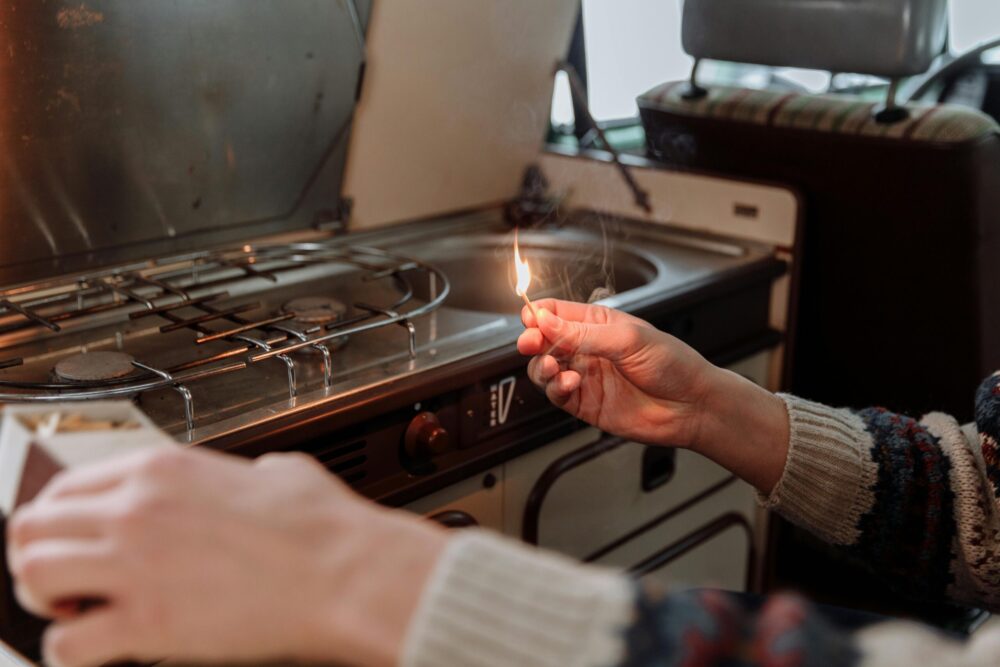The kitchen is a haven for creativity, where ingredients transform into delicious meals. However, it’s also a hotspot for potential hazards, especially fires. Kitchen fires are one of the most common causes of home insurance claims, often leading to devastating losses. While many homeowners focus on prevention, having the right safety tools—like fire extinguishers, smoke alarms, and sprinkler systems—can significantly affect how insurance claims are processed and reduce overall costs.
In this article, we’ll explore the role of essential kitchen safety tools, how they impact insurance claims, and why they’re a crucial part of safeguarding your home and your finances.
Why Kitchen Fires Are a Major Concern
Kitchen fires are not only dangerous but also costly. They can destroy property, disrupt lives, and lead to increased home insurance premiums. According to the National Fire Protection Association (NFPA), cooking is the leading cause of home fires and fire injuries, with many incidents resulting from unattended cooking or grease igniting on the stove.
Common Causes of Kitchen Fires
- Grease Fires: Overheated oil can ignite in seconds.
- Electrical Fires: Faulty wiring or overloaded circuits can spark flames.
- Unattended Cooking: Leaving food unattended on the stove is a frequent culprit.
By implementing safety tools and practices, you can not only prevent these incidents but also demonstrate to your insurance provider that you’re a responsible homeowner, which may positively impact your premiums and claims.
The Role of Fire Safety Tools in Kitchen Insurance Claims
When a kitchen fire occurs, the presence (or absence) of safety tools can significantly influence how an insurance company handles your claim. These tools can mitigate damage, reduce liability, and even qualify you for discounts on your premiums.
1. Fire Extinguishers
Fire extinguishers are your first line of defense against small fires, especially in the kitchen.
Impact on Insurance Claims
- Damage Mitigation: If a fire extinguisher is used effectively, it can limit damage to a small area, reducing the cost of repairs and replacements. This makes the claims process smoother and often results in smaller payouts, which can prevent future premium increases.
- Proof of Responsibility: Insurance providers may view the presence of a fire extinguisher as a sign of proactive homeownership, which could influence how they assess your claim.
Types to Consider
For kitchens, choose a fire extinguisher rated for Class B (flammable liquids) and Class K (cooking oils) fires. Ensure it’s easily accessible and that all household members know how to use it.
2. Smoke Alarms
Smoke alarms are essential for early detection of fires, providing critical time to contain the blaze or evacuate safely.
Impact on Insurance Claims
- Early Detection Reduces Damage: Smoke alarms can alert you to a fire before it grows out of control, minimizing property damage and lowering the overall claim amount.
- Mandatory for Coverage: Many insurance policies require functional smoke alarms as a condition of coverage. Failure to have them could lead to claim denial.
Insurance Benefits
- Some insurers offer discounts for homes equipped with smoke alarms, especially if they’re interconnected or monitored.
- Modern smoke alarms with smart technology can notify you remotely, further enhancing safety.
3. Sprinkler Systems
Residential sprinkler systems, though less common in homes, are highly effective in controlling fires and preventing widespread damage.
Impact on Insurance Claims
- Significant Damage Reduction: Sprinkler systems can suppress or extinguish fires before they spread, drastically reducing repair costs and simplifying claims.
- Lower Premiums: Homes with sprinkler systems are often eligible for premium discounts due to the reduced risk of catastrophic losses.
Considerations
While sprinkler systems are an investment, they provide unparalleled protection and may be especially beneficial for homes with open floor plans or valuable kitchens.
How Safety Tools Influence Insurance Premiums
Insurance companies assess risk when determining your premiums, and safety tools play a significant role in reducing that risk. Here’s how:
1. Discounts for Fire Safety Tools
Many insurance providers offer discounts for homes equipped with:
- Smoke alarms
- Fire extinguishers
- Sprinkler systems
- Monitored alarm systems
2. Risk Assessment
Homes with adequate fire safety measures are considered lower risk, which can lead to better rates. Conversely, a lack of safety tools may result in higher premiums or even policy rejection.
3. Claims History
Using fire safety tools to prevent or minimize fire damage can help you maintain a clean claims history. Fewer claims often translate to lower premiums over time.
Steps to Fireproof Your Kitchen
Proactively equipping your kitchen with fire safety tools not only protects your home and loved ones but also simplifies the insurance process. Follow these steps to fireproof your kitchen:
1. Install Smoke Alarms
- Place smoke alarms in or near the kitchen, avoiding areas directly above stoves to prevent false alarms.
- Test alarms monthly and replace batteries at least once a year.
2. Keep Fire Extinguishers Handy
- Mount fire extinguishers in easy-to-reach locations, such as under the sink or near the exit.
- Learn how to use them and train family members to do the same.
3. Consider a Sprinkler System
- If building or renovating, explore options for installing a residential sprinkler system.
- Look for systems that are designed for kitchens and integrate with your home’s fire safety setup.
4. Practice Safe Cooking Habits
- Never leave cooking unattended.
- Keep flammable items away from stovetops and ovens.
- Use timers to remind yourself when food is cooking.
5. Regular Maintenance
- Clean grease buildup in ovens and range hoods to prevent ignition.
- Check electrical appliances and cords for wear and tear.
What to Do If a Kitchen Fire Occurs
Even with safety tools in place, fires can happen. Knowing how to respond and handle the insurance process can make a significant difference.
1. Contain the Fire (If Safe)
Use a fire extinguisher or cover flames with a lid to smother them. Never use water on grease fires.
2. Evacuate and Call 911
If the fire cannot be controlled, evacuate immediately and call emergency services.
3. Document the Damage
Take photos or videos of the affected area before beginning cleanup. This documentation is critical for your insurance claim.
4. Notify Your Insurance Provider
Contact your insurer promptly to report the incident. Provide them with details and evidence, including photos and receipts for damaged items.
5. Work with the Adjuster
An adjuster will assess the damage and determine the payout. Having functional safety tools can support your claim and expedite the process.
Final Thoughts: The Importance of Fireproofing Your Kitchen
Fireproofing your kitchen isn’t just about installing tools—it’s about creating a safer environment and reducing the financial and emotional toll of potential disasters. Fire extinguishers, smoke alarms, and sprinkler systems are invaluable investments that not only protect your home but also impact how your insurance provider views and handles claims.
By demonstrating responsibility and equipping your kitchen with these essential safety tools, you can secure lower premiums, minimize damages, and ensure peace of mind. Take the time to assess your kitchen’s fire safety measures today, and enjoy the peace of mind that comes with knowing you’re prepared for any eventuality.


